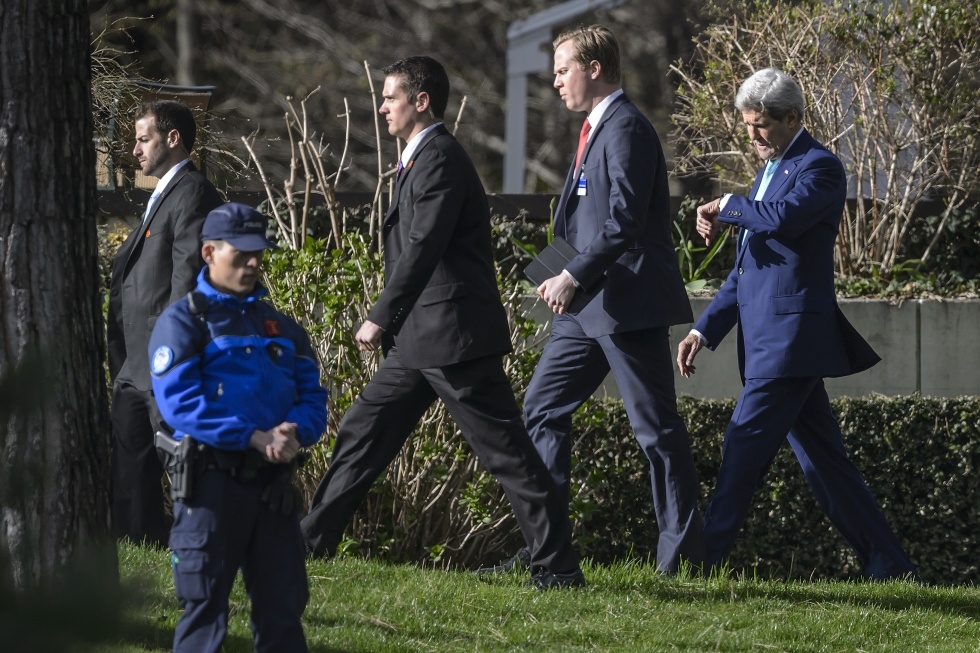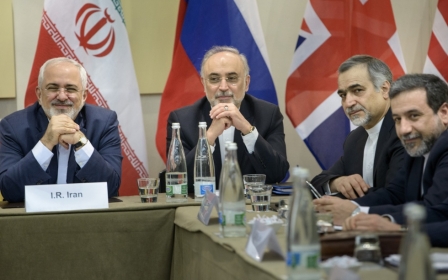Iran nuclear talks drag on into seventh day

Iranian nuclear talks dragged on into the early hours on Thursday, with US Secretary of State John Kerry and his Iranian counterpart Mohammad Zafir holding a closed door session from 9:20 pm (1920 GMT) on Wednesday to 5:50 am (0350 GMT) today, US officials said.
The French and German foreign ministers also attended the late-night discussions in the Swiss lake resort of Lausanne with German Foreign Minister Frank-Walter Steinmeier now cancelling a planned trip to the Baltics in order to continue talks, a German diplomat told AFP.
The talks were originally due to conclude at midnight on 31 March but have spilled over into their seventh day.
While little concrete information has emerged about the deal, most statements from the various negotiating teams seem to indicate that while progress has been made, critical gaps remain.
On Thursday morning Zarif said that "significant progress," had been made but that there was no "final result yet".
"We don't have any final result yet," Zarif told reporters. The six powers - US, UK, France, Russia, China and Germany known as the P5+1 - "have to examine among themselves the results of the negotiations. We don't know yet the result of those discussions".
"This should happen this morning," he said. "If these solutions are approved, it is expected that there will be a joint declaration made by me and Mrs (Federica) Mogherini", the EU foreign policy chief, Zarif said.
"There will be a statement to the press which should be announced but the text still has to be worked on," Zarif said.
French Foreign Minister Laurent Fabius seemed to mirror these statements.
"We are a few metres... from the finishing line, but we are well aware that the final metres are the hardest," Fabius told reporters.
Iran's chief negotiator Abbas Araghchi had appeared hopeful Wednesday, saying he believed "that at the end of the day we will be able to come to a conclusion and a resolution for all issues."
The issue of sanctions relief and details about the extent of research and development to be permitted appear to be the latest sticking point.
The White House has similarly stressed that the talks were continuing to make progress.
White House spokesman Josh Earnest, however, stressed that if the talks appeared to stall then “the United States and the international community” were “prepared to walk away”.
According to reports in the New York Times, it was the US that decided to walk away from the 31 March deadline, fearing that the Iranian negotiating team was using the self-imposed date to their advantage. The final deadline agreed in the 2013 framework is set for 30 June.
“They were turning our own deadline against us to see if we would give ground,” just to be able to claim that the 31 March date had been met, a senior official, who would not be identified because of the supreme secrecy of the negotiations, told the New York Times.
Sources familiar with the talks also stressed that Obama had instructed the Western powers at the talks to disregard the deadline in hopes it would shift the balance and give new life to the talks.
Stay informed with MEE's newsletters
Sign up to get the latest alerts, insights and analysis, starting with Turkey Unpacked
Middle East Eye delivers independent and unrivalled coverage and analysis of the Middle East, North Africa and beyond. To learn more about republishing this content and the associated fees, please fill out this form. More about MEE can be found here.




